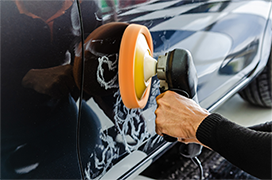
Car servicing is essential for maintaining a vehicle’s performance, safety, and longevity. Regular service checks typically include inspecting the engine, transmission, brakes, suspension, and exhaust system, as well as replacing wear-and-tear components such as oil, air filters, and spark plugs. Fluid levels, including engine oil, brake fluid, and coolant, are also checked and replenished to ensure smooth operation. Tire health is assessed for proper inflation, tread wear, and alignment to maximize fuel efficiency and handling. In addition to mechanical components, servicing involves checking electrical systems, battery health, and, in modern cars, software updates for advanced driver-assistance systems. Routine servicing helps prevent breakdowns, reduces the risk of costly repairs, and ensures the vehicle operates safely and efficiently over time. Regular maintenance schedules, as recommended by manufacturers, are crucial for preserving a car’s warranty and resale value.


